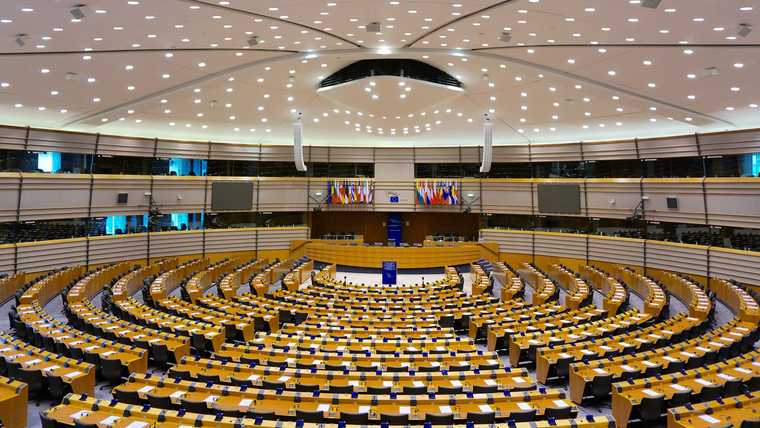by V4 Agency
“We are awaiting new proposals that will be coherent with EU treaties,” Polish government spokesman Piotr Muller said, after Poland and Hungary have signalled that they will not accept any proposals that would use the rule of law criteria as a political weapon. Hungarian Justice Minister Judit Varga has recently pointed out that even the EU itself has no exact definition for the rule of law, something that was confirmed by several experts who spoke to V4NA.
“It was a clear signal that Poland and Hungary cannot agree to arbitrarily created legal norms that are inconsistent with EU treaties,” Polish government spokesman Piotr Muller said in connection with linking the rule of law criteria to the EU’s next budget.
Regarding the seven-year budget, he described the proposal currently on the table as a good one, adding that the mechanisms linked to it must be agreed on. “We are awaiting new proposals that are coherent with the EU treaties and secondly, will be in line with the conclusions of the European Council (decisions) from July, when the EU budget was agreed”, Muller said.
Polish Deputy Foreign Minister Szymon Szynkowski emphasized that the European Council made a decision on the budget in July, and it also clarified that no rule of law mechanism could be included. Nevertheless, the German EU presidency drew the conclusion that the concept should be taken further, Mr Szynkowski said. This is simply putting political pressure on certain countries, he added. It is a common budget Poland also puts a lot of money into, he stressed.
The whole mechanism is controversial, Gergely Gulyas, the head of the Hungarian Prime Minister’s Office said, pointing out that the rule of law concet cannot be served or satisfied by trampling all over it. The debate in Brussels aims to establish the right for the European Union to intervene in Hungary’s domestic affairs, because so far they have been unable to pressure the Hungarian government in such issues, the minister noted.
The German government has signalled that, because of the Polish-Hungarian veto, no decisions have been made on either the EU’s next budget or the post-pandemic recovery package. Reacting to this allegation, Hungarian Justice Minister Judit Varga said they had been in constant communication with the German presidency, indicating that they would not accept anything that would deviate from the previous agreement.
There is no basis for linking payments to political and ideological conditions, and this also contradicts EU law, the minister said. “In essence, they want to adopt an ideologically designed sanction that would be applied against Hungary and Poland,” Judit Varga said.
Speaking to V4NA, Hungarian Foreign Minister Peter Szijjarto said there was no real definition for the rule of law, and this is why “it’s so concerning that anyone is trying to use it as a leverage or as matter of blackmailing.”
The foreign minister added that so far what they understood was this: „if the liberal side wins in a country then the liberal mainstream considers that political structure democratic. If it’s not the Liberals to win, or rule the country, then the liberal mainstream considers that political structure undemocratic.”
“The rule of law means that all members of a society – governments and politicians included – are equally subject to the law, under the control of independent courts irrespective of political majority,” reads the answer from the Office of the President of the European Parliament, in response to V4NA’s inquiry. However, several legal experts have underlined that this definition leaves room for broad interpretation.
There are several rule of law concepts, and the Venice Commission identifies three major European traditions related to it, international lawyer Norbert Toth told V4NA. He said that in addition to the great European traditions, there are several ideas that are less widely known, and that the EU did not have a unified approach.
Speaking to V4NA Tymoteusz Zych, Vice-President of the Polish legal research institute Ordo Iuris, said that because EU member states have different legal systems, any common legal ground must be based on a universally accepted position. Although the fundamental principles of democracy exist across Europe, it is impossible to come up with one single rule of law definition, if the individual countries refuse to accept it.

